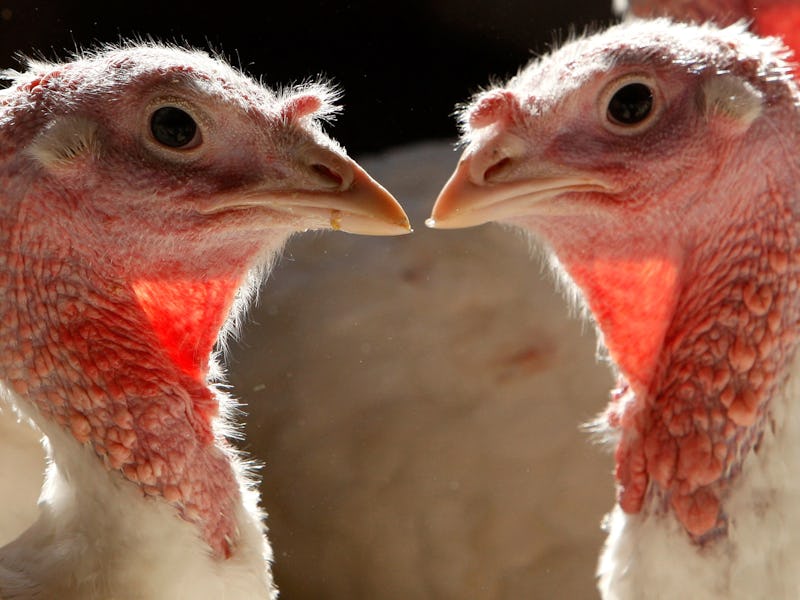Birds Don't Have Teeth Because of Their Dinosaur Ancestors
Ever wonder why birds have beaks but no teeth? Blame evolution.

Today’s birds don’t seem quite as threatening as their gigantic dinosaur ancestors, in part because they lack the teeth that make the Tyrannosaurus rex so terrifying.
But why don’t today’s birds have teeth? New fossil discoveries offer up some clues.
The fossils, described in a paper in Current Biology last week, were discovered by a team from China, France, and the United States. The team first described a juvenile Limusaurus, which lived in China 160 million years ago, back in 2001, complete with teeth. But when they later found an adult specimen, they initially thought it was a different species because its jaw was toothless. Closer inspection, and a few more specimens, convinced the researchers that the species were one and the same, they just had specimens at different developmental stages.
The fossils suggest Limusaurus lost its teeth in adulthood, switching from an omnivorous diet to a more vegetarian lifestyle. This isn’t rare in the reptile world — some fish and amphibians (and even the platypus) lose teeth as they age, a phenomenon known as ontogenetic edentulism. But it’s rare in the bird family tree. This is the first-known instance of edentulism in dinosaurs.
The Limusaurus diet changed as it lost teeth at adulthood.
Edentulism in Limusaurus, a theropod, shows us one of the evolutionary steps in bird beak evolution. Birds didn’t just appear without teeth one day. Some intermediate species, like Limusaurus, had to lose them first.
If scientists can turn up more fossils of bird ancestors showing teeth loss, we’ll be able to figure out exactly how toothy dinosaur jaws eventually became toothless bird beaks. And if anything, it makes the terrifying dino-chickens coming our way a little less terrifying.